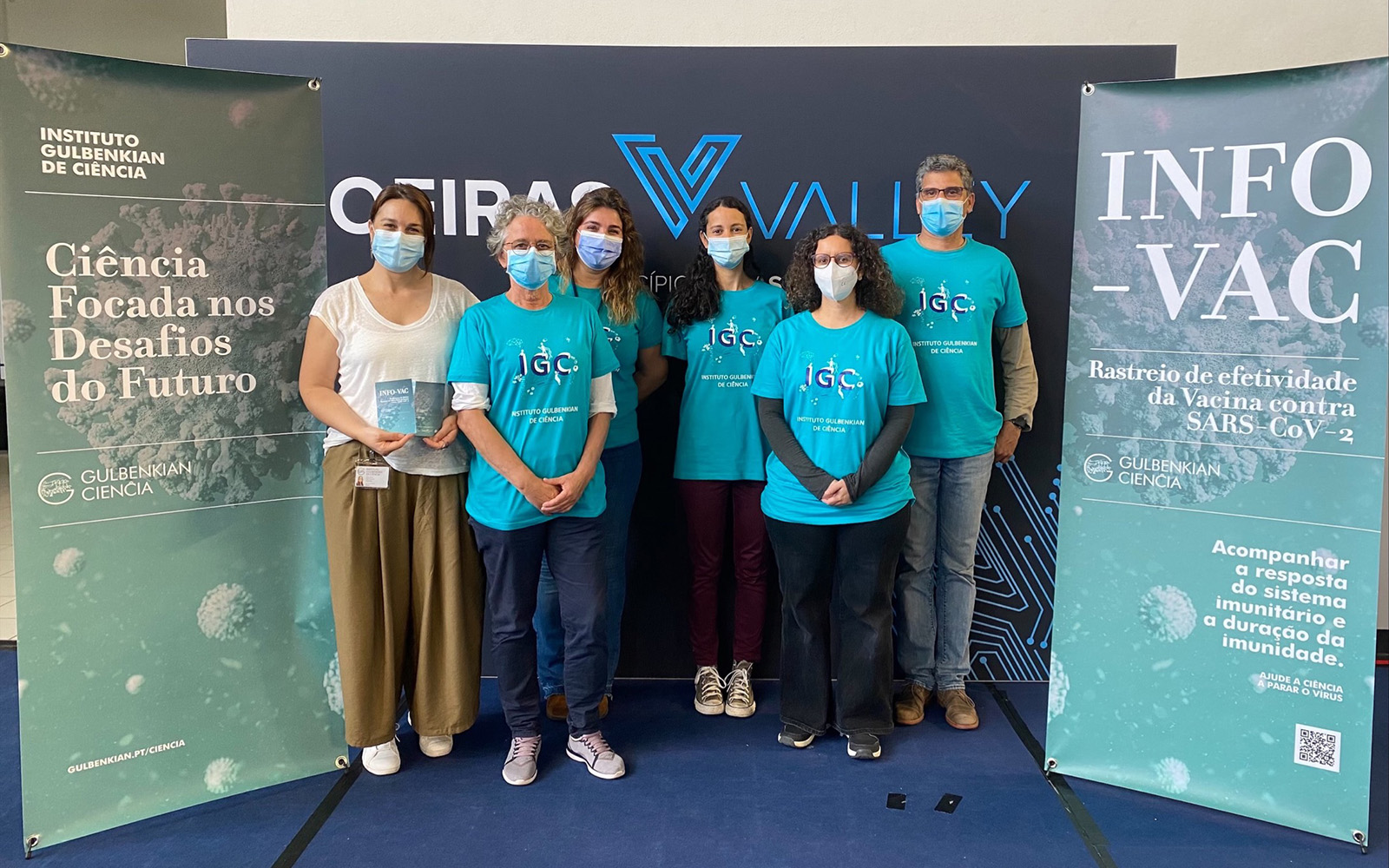INFO-VAC: Effectiveness of COVID-19 vaccines in cancer patients

Of 211 cancer patients included in a study coordinated by the Instituto Gulbenkian de Ciência (IGC) and the Hospital Professor Doutor Fernando Fonseca E.P.E., 43% developed antibodies after the first dose of the vaccine against COVID-19, increasing to 83% after complete vaccination. However, the percentage of patients who developed antibodies during this period varied according to the vaccine that was administered and the type of treatment they were undergoing.
This research is particularly urgent given that it involves a group that is at increased risk for severe illness from COVID-19 and often includes individuals who undergo immunosuppressive therapies that compromise the immune system.
Preliminary data from this study revealed that 90.5% of cancer patients inoculated with an mRNA vaccine – either Moderna or Pfizer/BioNTech –, had antibodies against SARS-CoV-2 three weeks following the administration of the second dose. On the other hand, only 65% of patients receiving an adenovirus-based vaccine – AstraZeneca or Jansen –, developed immunity.
Previous results from the INFO-VAC project, conducted by Instituto Gulbenkian de Ciência in collaboration with CHLO, the Oeiras City Hall, and Western Lisbon and Oeiras’ Health Centers, showed that complete vaccination with the Pfizer/BioNTech vaccine induced the production of antibodies in 99.8% of the involved healthcare and education professionals, whereas the AstraZeneca vaccine elicited the production of antibodies in only 97.7% of the participants. The response to vaccines, especially AstraZeneca’s, seems to be less effective in cancer patients than in these health and education professionals.
Preliminary analyses regarding mRNA vaccines revealed that the type of treatment that cancer patients undergo could influence their response to vaccination. From the patients undergoing immunosuppressive therapies, such as chemotherapy and targeted therapies, 88% developed antibodies after complete vaccination, while this happened for 98% of patients receiving other types of treatment.
Overall, patients undergoing immunosuppressive therapies tend to have significantly lower levels of antibodies against SARS-CoV-2 than patients receiving other treatments. This data indicates that patients under immunosuppressive regimens develop less effective responses to COVID-19 vaccines, considering not only their ability to generate antibodies, but also the amount of antibodies that are produced.
The first results from this survey, which were presented in September at the European Society for Medical Oncology (ESMO) Congress, demonstrate the promising and innovative nature of this study.
The study includes 211 cancer patients, undergoing various types of treatments, and survivors from the Hospital Professor Doutor Fernando Fonseca, that continues enrollment. The next step will be to monitor the duration of immune responses in these patients, who will be followed for at least a year.
INFO-VAC, which involves two research groups from IGC, aims at answering some of these questions by following the effectiveness of vaccines in the real world and supporting future decisions, including which vaccines should be used in certain population groups. This is one of the initiatives of the Gulbenkian Foundation to respond to the pandemic, which, in collaboration with hospitals and municipalities, has been following the effectiveness of the COVID-19 vaccines in different population groups, including already a total of 3000 participants.
